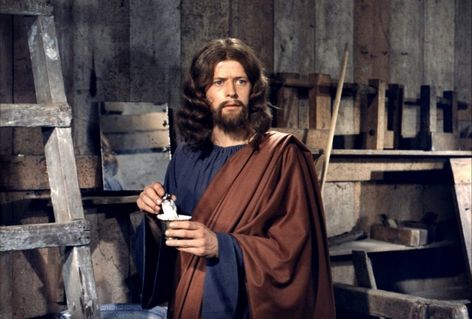
(source)
If The Discreet Charm of the Bourgeoisie and The Phantom of Liberty seem to have little coherence in their dream logic, lack of a narrative, and apparent formlessness, The Milky Way doesn’t respect any kind of temporal or spatial coherence. The film is about the journey of 2 vagrants, Pierre and Jean, to Santiago de Compostela in Spain, where the remains of St. James were reputed to be buried, and they cross paths with people from other time periods. A symbolic journey across time and space, it is about Christian history; about the clashes between different sects or denominations in Christianity; about dogmas vs heresies, and intolerance; and about the contradictions in the teachings of Christ.
In a way, The Milky Way is anti-religious, or at least, against organised religion, intolerance, and violence; with details and images that might be perceived as blasphemous. At the same time, it feels no more than a well-researched essay of sorts, viewing Christianity and its doctrine from a sceptical perspective. Bunuel takes Christianity seriously as he critiques it and even when he laughs at it. Or perhaps, it’s a more religious film than I realised—the journey can be seen as a spiritual quest, and a search for meaning.
Full of elusive references and easily missed jokes, it is not as funny as The Phantom of Liberty and The Discreet Charm of the Bourgeoisie, but it’s strange, and interesting in its way.
Bonus: Luis Bunuel’s Quarrel With the Church, an essay about his background, and religion in his films.
No comments:
Post a Comment
Be not afraid, gentle readers! Share your thoughts!
(Make sure to save your text before hitting publish, in case your comment gets buried in the attic, never to be seen again).